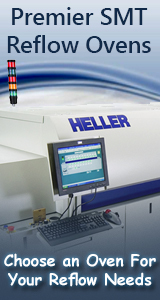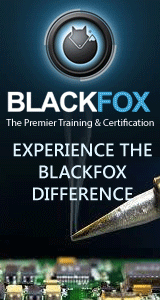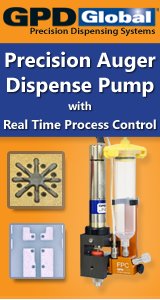In a joint effort, IPC— Association Connecting Electronics Industries® and JPCA (Japan Electronics Packaging and Circuits Association) have released the first operational-level standard for the rapidly evolving printed electronics industry. To help designers and companies create reliable products using printed electronics technologies, IPC/JPCA-4921, Requirements for Printed Electronics Base Materials (Substrates), defines terms and establishes basic requirements for five material categories of substrates used today in printed electronics — ceramic, organic, metal, glass and other.
Although printed electronics is largely based on long-established technologies combined with recent innovations, the industry as a worldwide fully-functional marketplace is relatively still in its infancy. Some analysts predict printed electronics is an industry that will see an estimated $20–30 billion in sales by the end of this decade. As IPC Director of Technology Transfer Marc Carter explains, for this technology to become a standalone industry, it must have some commonalities that help build a structure. “The availability of this standard provides a common language for designers, equipment makers and manufacturers. System designers need to have guidelines, and both material and equipment suppliers can benefit from standards that let them focus their development programs.”
One of the exciting opportunities afforded by printed electronics — the diversity of materials — has also been one of the greatest challenges impeding the industry’s growth. “It’s difficult to grasp the breadth of opportunities when a range of materials can be printed onto various substrates to produce from very simple electronic circuits to the highly complex,” says Carter.
Individuals who have worked with flexible circuits are most likely to feel the most familiar with details in IPC/JPCA-4921, but they will also find a number of significant differences. “Some of the materials are similar or the same, but people are leveraging different intrinsic materials attributes to enable novel applications,” adds Carter.
Already, companies in different geographies are beginning to focus their attention on printed electronics for different tasks. Whether it’s using the technology to build the inner layers of a circuit board, to develop printed electronic active components, to investigate advanced automotive applications or to design low-cost displays for portable computing and mobile applications, interest in the technology is growing rapidly, as is the quest for knowledge.
More than the printed electronics’ first industry standard, IPC/JPCA-4921 provides a starting point for IPC’s Printed Electronics Initiative to establish a critical segment of the infrastructure that will help the industry expand more quickly. This initiative includes a dedicated management council for companies to discuss issues and to help develop tools and studies; a printed electronics conference track and exhibition area at IPC APEX EXPO® 2013; and more industry standards, in continued partnership with JPCA, to help companies push the technology to the next level.
As the fledgling printed electronics industry continues to grow and as its manufacturing processes, inks and substrates continue to improve, IPC/JPCA-4921 may have to be updated at a more frequent pace than other industry standards. “We think this will attract a lot of interest since it’s the first standard in this arena, which means a lot of people will have comments,” says Carter.
IPC members may request a free single-user download of IPC/JPCA-4921 by sending an e-mail to MemberTechRequests@ipc.org within 90 days of the document’s publication. After that date, IPC members may purchase the guideline for $36. The standard industry price is $72. For more information, visit www.ipc.org/4921 or contact Marc Carter at MarcCarter@ipc.org.
IPC (www.IPC.org) is a global industry association based in Bannockburn, Ill., dedicated to the competitive excellence and financial success of its 3,100 member companies which represent all facets of the electronics industry, including design, printed board manufacturing, electronics assembly and test. As a member-driven organization and leading source for industry standards, training, market research and public policy advocacy, IPC supports programs to meet the needs of an estimated $2.02 trillion global electronics industry. IPC maintains additional offices in Taos, N.M.; Arlington, Va.; Stockholm, Sweden; Moscow, Russia; Bangalore, India; and Shanghai, Shenzhen and Beijing, China.
JPCA (www.jpca.org) is a Tokyo-based trade association serving about 400 member companies in the electronic circuits industries. JPCA supports the industries through global trade shows, including JPCA Show, Large Electronics Show, Microelectronics Show and JISSO PROTEC; industry standards; management programs; market/statistics/technology research; and environment/ foreign trade/government relations programs. JPCA works cooperatively with other organizations of the World Electronic Circuits Council (WECC), including more than 40 years of friendship with IPC; Japan-China Relationship Council under JPCA/CPCA; MOU of JPCA/KPCA and JPCA/TPCA.
 »
»





